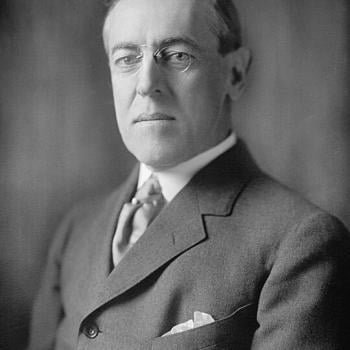Editors' Note: This article is part of the Public Square 2014 Summer Series: Conversations on Religious Trends. Read other perspectives from the Buddhist community here.
As an interested observer, I count it an honor to contribute to another important Patheos forum on Buddhism (see Future of Buddhism). The framing of the topic at hand caught my attention as it presumes that the way forward for Buddhism requires greater inclusivity of women and gender equality in leadership roles.
My training in the academic study of religion tells me that not all Buddhists will agree. That is not an indictment of Buddhism but rather an acknowledgement that internal disagreement is a universal characteristic of religions.
A professor once asked a class of Christian seminarians to identify something about which all Christians agree. The students easily ticked off the latest controversies, after which one offered: "We all think Jesus is somehow important." The point is only slightly exaggerated.
My comments in the remainder of this article presuppose that Buddhists will not reach a consensus on the topic at hand, and that even if they did concur in principle to move forward toward greater inclusivity and gender equality in leadership roles, they would debate the particulars of that goal and/or the means to achieve it. I would presuppose the same about any religion.
I wish to offer three observations, not about consensus, but rather about the conversations Buddhists will have on this topic. Here again I draw upon the perspective of the academic study of religion regarding the process of applying religious resources to contemporary issues. My observations have to do with sacred texts, global diversity, and religious standards.
Buddhism's sacred texts
In religions with a canon or authoritative collection of sacred texts, adherents tend to turn there first for guidance. What do the texts say about inclusivity and gender equality in leadership roles? For Buddhists this often boils down to, What did the Buddha say?
This seemingly simple question is extraordinarily difficult to answer. The Buddhist canon is very large and spans many centuries and cultures. In fact, it is more accurate to use the plural, "canons." The earliest written passages, which are found within the Theravadin Pali Canon, date long after the Buddha's passing.
Scholars debate the authenticity of the Buddha's purported words in much the same way that scholars approach passages about Jesus in the New Testament. Based on a close analysis of the Pali Canon, scholar Richard Gombrich argues in his book What the Buddha Thought "that we can know far more about the Buddha than it is fashionable among scholars to admit." Even so, Gombrich does not claim to know everything about the historical Buddha, and of course some scholars question whether he knows as much as he claims.
Sacred texts may offer the first word but never the last. Adherents variously interpret and apply their texts. For instance, what is to be done with the reports of the Buddha's reluctance to ordain women into the monastic Sangha and his eventual imposition of the so-called Eight Important Rules on nuns?
Some Buddhists will follow Gombrich and other scholars in consigning these passages to later patriarchal dynamics in the religion. Others will grant the authenticity of the textual reports but interpret them in opposite ways, either as concessions to the customs of the times or as still valid today. In any case, the sacred texts cannot be avoided no matter how difficult the conversations about their contents prove to be.
Buddhism's global diversity
As implied above regarding canons, Buddhism qualifies as a global religion by virtue of its geographic and cultural expanse. Again a plural, "Buddhisms," is accurate. It is unlikely that conversations about inclusivity and gender equality in leadership will include representatives of all Buddhist groups, but not merely due to the sheer number.
Some groups claiming a Buddhist identity will not be invited into the conversations, a common occurrence in religious circles. And some Buddhist groups will have no interest in being invited. Will efforts be made to include their voices, or at least their perspectives, in the conversations?
Among the conversation partners, perspectives will vary and the record of inclusivity and gender equality in leadership will be uneven. Thus even the agreeably disposed will find it difficult to agree.
Feminist critiques of Buddhism illustrate this last point. In her article "Feminist Buddhism as Praxis," Kawahashi Noriko has written about both feminist initiatives among Asian Buddhists and the "arrogance of first-world feminism" that ignores or dismisses those initiatives. This reminds me of the fault lines in global Christianity as well as the emergence of an Islamic feminism that does not rely on Eurocentric presuppositions. Any topic will look different depending on one's vantage point.




